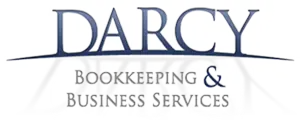

Applying for a business loan and receiving final approval can be a lengthy process, but it can make a substantial difference between keeping your own business operating and shutting it down which certainly makes the whole process worthwhile. The exact time for approval can vary depending on the type of business loan you are applying for, its complexity, and the timeliness of the borrower providing the information. The amount of a loan may also differ depending on the needs, profitability, and credit history of the business. The good news is the fact that most loan providers require the same information and documents from business loan applicants.
Below are the usual documents and prerequisites for a business loan application.
Keep in mind that the application forms vary from a lending institution to a lending institution. However, lenders typically ask for the same information in your application. So you have to prepare for questions such as - what is the purpose of your application and where you intend to use the proceeds of your loan when received. Other questions may focus on the assets the business possesses, credit history with preferred suppliers, existing business debts, the key members of the business’s management team, and the director's personal background. These questions need to be considered first before filling out the application form.
Some lenders may require supporting evidence to secure claims in a director’s resume that proves their experience in business management and the industry. This is crucial for business loans that are to be used for start-up businesses.
Submission of your business plan together with your application form is imperative in all types of loan applications. Your plan should cover your projected financial statements for specifics like cash flow, profit and loss, and balance sheet. Lenders will generally inquire into a director’s credit report, which can be a key determinant in the lender's issuance of a loan. It is advisable to ensure your credit report is clear of any red crosses before starting the application process.
All lenders will request to see at least the last financial year’s tax return for the business as well as the director’s personal income tax returns. The lender will also likely ask to see a copy of the Australian Taxation Offices balances for the integrated client account as well as the income tax account for the business and possibly the director’s where applicable. This will help determine the applicant's ability to service the repayments of the loan.
Lenders may require directors owning a percentage of a business to provide personal financial statements pertaining to themselves. Statements will most likely be expected to include an income statement, bank statements, cash flow projection, and balance sheet that cover the period of a year
Another general requirement of a business loan application will be the aged debtors and creditors of the business at the most up to date point in time possible. This is to understand the breakdown of your creditors and debtors which may determine further risks of the loan.
Collateral is always one of the primary concerns of lenders. Substantial collateral is a requirement for loans that involve higher default risk factors. It is not often that you will not be asked to provide collateral but if the business has strong financial statements, substantial assets and a current relationship with the lender this may not be required. However, whenever applying for a loan you should be prepared to offer some form of collateral as this is the rule more often than not.
Lenders may also require you to submit pertinent documents like articles of incorporation, copies of contracts with third parties, and franchise agreements. An applicant needs to be prepared to be totally transparent in their business dealings as questions can sometimes be considered intrusive.
These requirements from possible lenders will serve as guidelines in order for an applicant to consider before beginning the loan application process.
